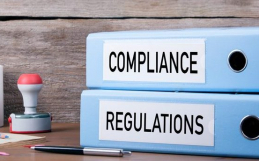On 7 April 2020, the National Cabinet agreed to implement the ‘National Cabinet Mandatory Code of Conduct: SME Commercial Leasing Principles During COVID-19’ (the Code).
The Code is designed to provide relief to small-to-medium enterprises (SME) that are commercial tenants, including tenants of retail, office and industrial properties, and that are experiencing financial hardship during the COVID-19 pandemic. The Code does this by imposing mandatory principles that, broadly speaking, require the landlord and tenant to negotiate in good faith to temporarily amend existing leases in order to improve the cash flow of both the tenant and the landlord in a way that is proportionate, taking into account the impact of the COVID-19 pandemic on the tenant and the individual circumstances of the lease.
When will the Code apply?
The Code will apply to all commercial leases where:
- the tenant is an SME, meaning that the tenant has an annual turnover of not more than $50,000,000; and
- the tenant is an eligible business for the purposes of the Commonwealth Government’s ‘JobKeeper’ programme. [As at the time of this article, the Treasurer has not set out the eligibility criteria for the JobKeeper programme].
For franchisees, turnover is assessed at the level of each individual franchisee. For retail tenants who are members of corporate groups, turnover is assessed at the group level, instead of at the level of each individual retail shop.
What principles are imposed by the Code?
The Code imposes both broad, overarching principles that will apply to all arrangements and negotiations between landlords and tenants that fall within the scope of the Code, and also more specific leasing principles that will apply on a case by case basis depending on the specific facts and circumstances of the lease.
The overarching principles include the following:
- Landlords and tenants must discuss relevant issues, negotiate appropriate temporary leasing arrangements, and work towards achieving mutually satisfactory outcomes.
- Landlords and tenants will negotiate in good faith.
- Landlords and tenants will act in an open, honest and transparent manner, and will each provide accurate and sufficient information in order to achieve outcomes consistent with the Code.
- Any agreed arrangements will take into account the impact of the COVID-19 pandemic on the revenue, profitability and expenses of the tenant, will be proportionate to the impact of the pandemic on the tenant, and will allow for a reasonable recovery period after the end of the pandemic.
- The landlord and tenant will assist each other in dealing with third parties, including governments, utility companies and financial institutions.
- Each lease must be dealt with on a case by case basis taking into account the facts and circumstances of the tenant, the landlord and the lease itself. This includes factors such as the structure of the lease, how much of the lease term remains until the lease expires, and whether the tenant is in administration or receivership.
The more specific principles that will apply on a case by case basis include the following:
- The landlord must not terminate the lease due to non-payment of rent during the period of the pandemic and/or during a reasonable subsequent recovery period.
- The tenant must continue to comply with the substantive terms of the lease, subject to any adjustment agreed with the landlord.
- The landlord must waive and/or defer the rent by an amount that is proportionate to the tenant’s reduction in trade during the pandemic period and subsequent recovery period.
- At least 50% of the total amount of rent that is waived or deferred must be waived (as opposed to deferred). The tenant can waive this requirement by agreement with the landlord.
- Payment of deferred rent must be amortised over the longer of the balance of the term of the lease and a period of not less than 24 months, unless otherwise agreed between the landlord and tenant.
- Any reduction in statutory charges, such as land tax or council rates, that is received by the landlord will be passed on to the tenant in a proportion consistent with the lease.
- The landlord must seek to share with the tenant on a proportional basis the benefit of any loan deferral arrangement that the landlord enters with its financial institution.
- Where appropriate, landlords can seek to waive recovery of expenses and outgoings payable by the tenant under the lease that are not rent. In this case, the landlord can reduce services as required.
- If an arrangement includes a repayment by the tenant to the landlord, the repayment must take place over time and must commence after the end of the pandemic period or subsequent recovery period.
- No interest, fees or other charges can be imposed on rent that is waived or deferred pursuant to the Code.
- The landlord must not draw on the tenant’s security, whether this is a cash deposit, bank guarantee or other form of security, during the period of the pandemic and/or any subsequent recovery period.
- The tenant should be provided with an opportunity to extend its lease by the period of the waiver and/or deferral of the rent, so that the tenant has an opportunity to trade during the recovery period after the end of the pandemic.
- The landlord must freeze any rent increases during the period of the pandemic and during a reasonable subsequent recovery period.
- The landlord must not prohibit the tenant from, or impose any levy on the tenant for, the tenant reducing opening hours or ceasing to trade as a result of the pandemic.
What happens if the landlord and tenant cannot agree?
Where the landlord and tenant cannot agree to a leasing arrangement that results directly from the COVID-19 pandemic, the matter is to be referred to whichever is the applicable dispute resolution process in the relevant state or territory for commercial or retail leases that will result in a binding mediation. This will vary from state to state.
When and how will the Code be applied in my state or territory?
The Code will be implemented in each Australian state and territory by way of legislation and regulations enacted at the state and territory level. The legislation and regulations enacted by each state and territory may modify or extend the scope of the Code, so it is impossible to say at this stage exactly how the Code will apply in each state and territory.
The Code will commence on the date or dates specified in the legislation and regulations introduced in each state and territory and will continue until the Commonwealth Government’s JobKeeper programme ends.
At Bryks Lawyers, we are experienced in advising both landlords and tenants in relation to all commercial leasing matters, including retail leases and leases for office and industrial properties. Contact us today to see how we can assist you!







